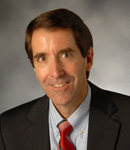University of Georgia researchers recently reported on their work to create pigs with induced pluripotent stem cells. This type of cell, first developed about five years ago, has the ability to turn into any other kind of cell in the body.
An Emory transplant team, working with the UGA group, hopes to use this technology to develop pig islet cells as an alternative to human islets to treat patients with Type 1 diabetes. Type 1 diabetes usually occurs early in life and affects more than one million Americans who are unable to manufacture their own insulin because their pancreatic islets do not function.
The Emory Transplant Center has conducted clinical trials since 2003 transplanting human pancreatic islet cells into patients with Type I diabetes. Some of these patients have been able to give up insulin injections, either temporarily or permanently. Other sources of islets are needed for transplant though because of the large number of potential patients and because each transplant typically requires islets from several pancreases.
To create pigs using pluripotent stem cells, the UGA team injected new genes into pig bone marrow cells to reprogram the cells into functioning like embryonic stem cells. The resulting pluripotent cells were inserted into blastocysts (developing embryos), and the embryos were implanted into surrogate mothers. The resulting pigs had cells from the stem cell lines as well as the embryo donor in multiple tissue types.
The pluripotent stem cell process could allow researchers to make genetic changes to dampen or potentially eliminate the rejection of the pig islets by the human immune system.














